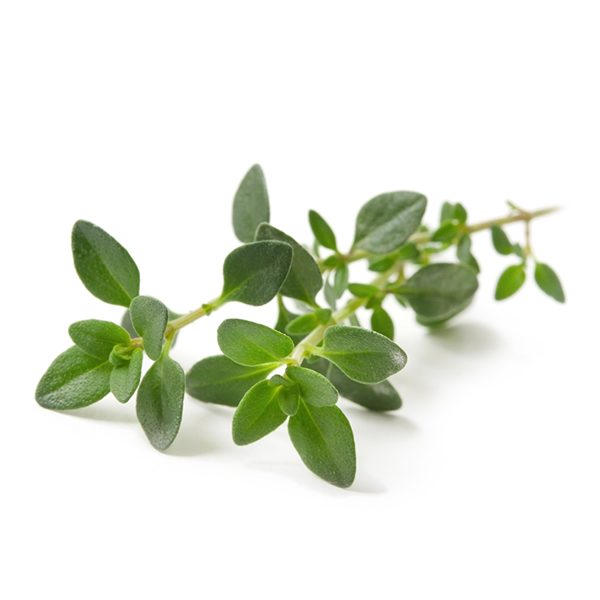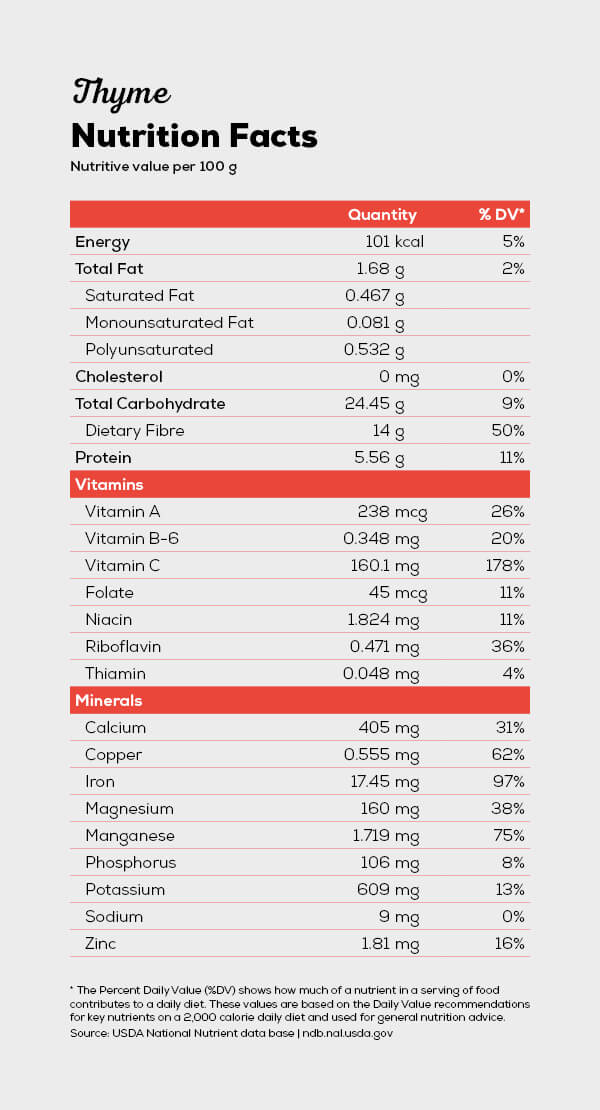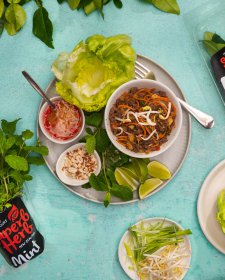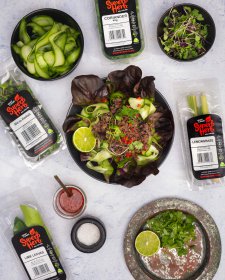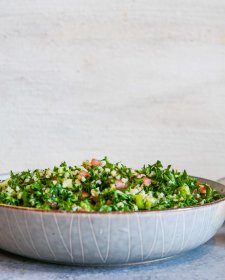Thyme
Subtle, dry aroma and a slightly minty flavour- Sorry, this product cannot be purchased.
Did you know?
Thyme is an evergreen shrub that has been used in medicinal and culinary applications for thousands of years. The most common form has the scientific name Thymus vulgaris. This herb is native to the Mediterranean region and certain parts of Africa, and its use dates back to the Egyptian empire.
Thyme is great for…
Seasoning blends for poultry and stuffing, fish sauces, chowders, custards, croquettes, soups and pizza bases.
Pairs well with…
- Lamb
- Veal
- Eggs
- Tomatoes
- Poultry
- Fish
Kitchen tips
Depending on how it is used in a dish, the whole sprig may be used (e.g., in a bouquet garni), or the leaves removed, and the stems discarded. Usually, when a recipe specifies “bunch” or “sprig”, it means the whole form; when it specifies spoons, it means the leaves.
Thyme leaves may be removed from stems either by scraping with the back of a knife, or by pulling through the fingers or tines of a fork.
Take care of your Thyme
Your potted Thyme requires lots of light but not too much heat and humid air. Water the plant with water once a week.
Keep your pack of Thyme in the vegetable compartment of your fridge and use within 8 days.
Nutritional facts
Thyme is an excellent source of vitamin C (75% of the daily recommended value), vitamin A (27%), fiber (16 %), riboflavin, iron (27%), copper, and manganese (24%), 11% each in calcium and manganese and doses of vitamin B6, folate, phosphorus, potassium, and zinc as well.
Health benefits
The most active ingredient found in Thyme is thymol. This organic compound has a wide range of effects on the body, including its ability to prevent fungal and viral infections, thereby reducing strain on the immune system.

